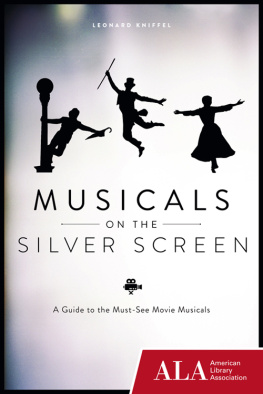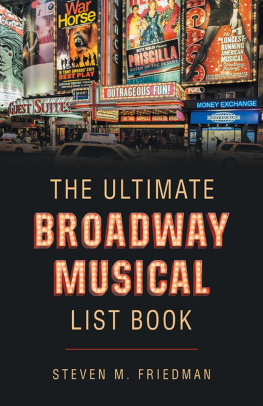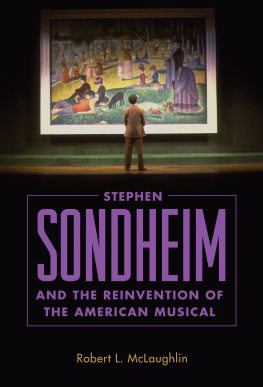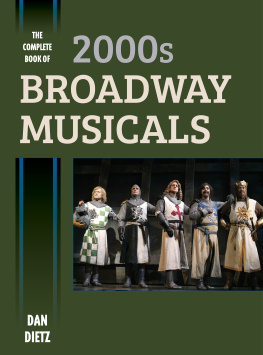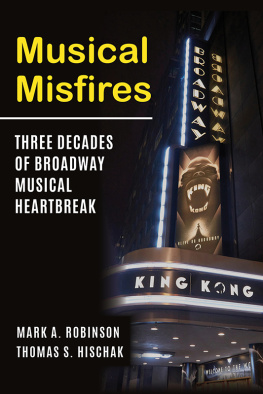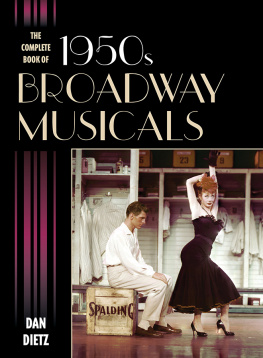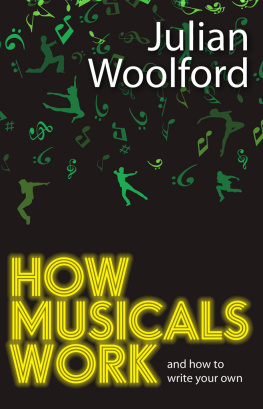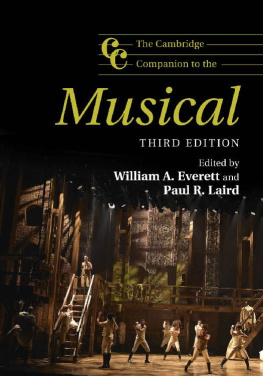Having been lucky enough to grow up during the majority of the Golden Era of the American musical, I was fortunate enough to see the original productions of many of the great musicals: West Side Story, My Fair Lady, Hello, Dolly!, The Soundof Music, Funny Girl, Cabaret, Oliver! and Fiddler on the Roof are just a few of the wonderful shows I thrilled to with their original casts. So by the time I started my own career working in the theatre in 1965, I was already steeped in the unique excitement that only the musical theatre can give. My first jobs in the theatre were working on such classics as Camelot, Hello,Dolly!, Oliver!, and Hair the latter being my last appearance in a musical when I joined the cast in the celebrated nude scene mercifully for one night only!
Even though I wanted to produce musicals since I was eight years of age, and therefore was unquestionably precocious and ambitious, I never dreamed that Id live through, never mind take a leading role in, the rise and rise of the British musical. In the process, I was also able to help take the musical beyond the confines of London and Broadway and make it a worldwide popular phenomenon.
As my grey cells start to reach their sell-by date, I Iook forward to reaching for James Invernes enjoyable and handy critical compendium of musicals and remind myself not only of the great nights in the theatre Ive spent, but also those that I have regretfully/mercifully missed!
I can pinpoint precisely the moment I realised how much I loved musicals. It was 1986, I was eleven and enjoying a fairly routine lunch in a London restaurant with my parents and sister. Wed taken the train up from Bournemouth that morning so Dad could attend some business meeting. Any excuse to come to the capital was to be grasped, but truthfully there wasnt much in this one for my sister and me. Then, as he awaited the bill, my father produced some theatre tickets from his pocket. A surprise, he announced with a typically theatrical flourish. Were going to see Les Misrables. Right now. I had already seen the show once and adored its heady mix of operatic bombast, the inevitability of revolutionary events bearing down on the personal tragedy of Jean Valjean and his nemesis Javert. But Im not sure that my reaction was what my parents had been expecting. There, at the lunch table, cocky almost-teenager that I was, I burst into tears.
It was a mawkish moment, I agree. Had it been a (very bad) musical, Im sure someone would have burst into song. As it was, my mother looked at me, vaguely perplexed, and asked, Are you pleased? Pleased was not the word; the prospect of engaging again with that magnificent mix of music and drama (direction by Trevor Nunn at his best) was actually overwhelming.
Does everyone react to great musicals like this? A friend of mine, a fellow arts journalist, once opined that, Anyone can like musicals. To love them as much as we do, you have to be Jewish or gay. As the first though not the second (he was nearly both; half of one and all of the other) it set me thinking. There are commonalities to be sure between Jewish culture and the tuners (as trade magazine Variety invariably calls them). To generalise a certain dash of schmaltz, an easy sentimentality and a heart-on-sleeve keying into deep emotions through music (this from a religion that places its music at such a premium that in the Middle Ages German cantors had to be afforded guards to protect them from angry congregants who didnt approve of the tunes). And thats no surprise; for a people small in size we Jews have had a disproportionate impact on the formation of musical theatre. Irving Berlin, Moss Hart, Richard Rodgers, Larry Hart, Leonard Bernstein, Jule Styne, Stephen Sondheim and many, many more of the musicals leading lights were Jewish. Amidst all this, Cole Porter, Andrew Lloyd Webber and Tim Rice seem strangely out of place. Its OK though, non-Jews are allowed in this club. Yet theres no denying that the chosen people were, apparently, chosen to write shows.
There has undoubtedly also been a large gay influence on the art form. Some of the above and dozens of other key figures fell into or hovered around that category. Gay themes surface in many shows La Cage aux Folles, Kiss of the SpiderWoman, Cabaret, Rent.
Yet the sheer size of audiences that have flocked to musicals belie my friends comment. Some statistics Cats has to date purred its way into around 250 cities in more than 20 countries, Les Misrables has been seen by more than 51 million people in more than 38 countries, Phantom of the Opera by more than 80 million in 25 countries. Not bad going for a genre whose hard-core fan base is supposedly niche.
Musicals, though, should be seen in context. It could be said that they have been gestating since, variously, the musical extravaganzas of the Greek, then Roman Empires, the wandering players Shakespeare would have known (and certainly during this period the development of indoor theatres with musicians needed to cover lengthy intervals enabling the house candles to be changed advanced the relationship of music and drama) via the commedia dellarte players from mainland Europe, or early opera. Most would point to the comic operabuffa from the likes of Rossini, or the operettas of Offenbach in France and Gilbert and Sullivan in England (and later, Franz Lehr in Austria) as the real starting point.
One can see why. Those forms intermingled speech and song, with the musical moments offering the dramatic high points. Fast forward several decades and, say, the sweet-toned climax of Show Boats You Are Love sounds clearly a descendant of Nanki-Poos A Wandering Minstrel, I from G&S s The Mikado. But its hardly that simple. To start with, the first official musical is usually thought to be The BlackCrook, a play with music that premiered in New York in 1866. Which predates Gilbert and Sullivans first show by some nine years.
Clearly, the evolution of the musical has taken place alongside that of various other genres. It has constantly learned from, been influenced by and assimilated the best of them. Operetta, most obviously. But then the jazz revolution of the late nineteenth and early twentieth centuries and its effect in turn on popular and folk song had its own impact. Along came musical revues in New York and London shows such as the Ziegfeld Follies and No, No, Nanette that spawned or adopted hit songs. In England, the working-class humour of the music-halls was still permeating musicals right up to Lionel Bart and beyond. In the US , shows were shot through with the bawdy flamboyance of vaudeville, which achieved a weird and unsettling synthesis with the spirit of German cabaret in Kander and Ebbs Chicago. Kurt Weill and fellow immigrants from a violent Europe brought that Berlin sensibility to the playhouses of New York (witness Weills at once alienating and absorbing Lady in the Dark).
The quantum leap forward for the musical occurred in 1928 with Jerome Kerns Show Boat. At once a finely wrought play and a stinging critique of racism, it was a far cry from the all-but-plotless revues that dominated. Kerns lyricist, Oscar Hammerstein II , would pull off the same trick to even finer effect fifteen years later with


